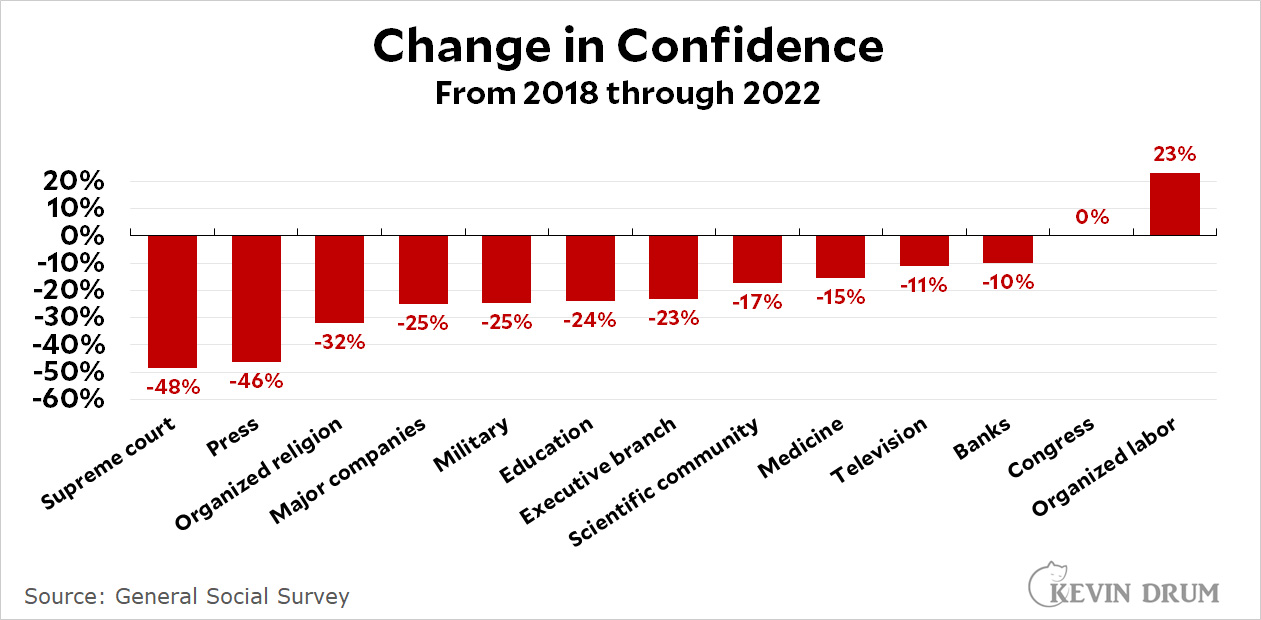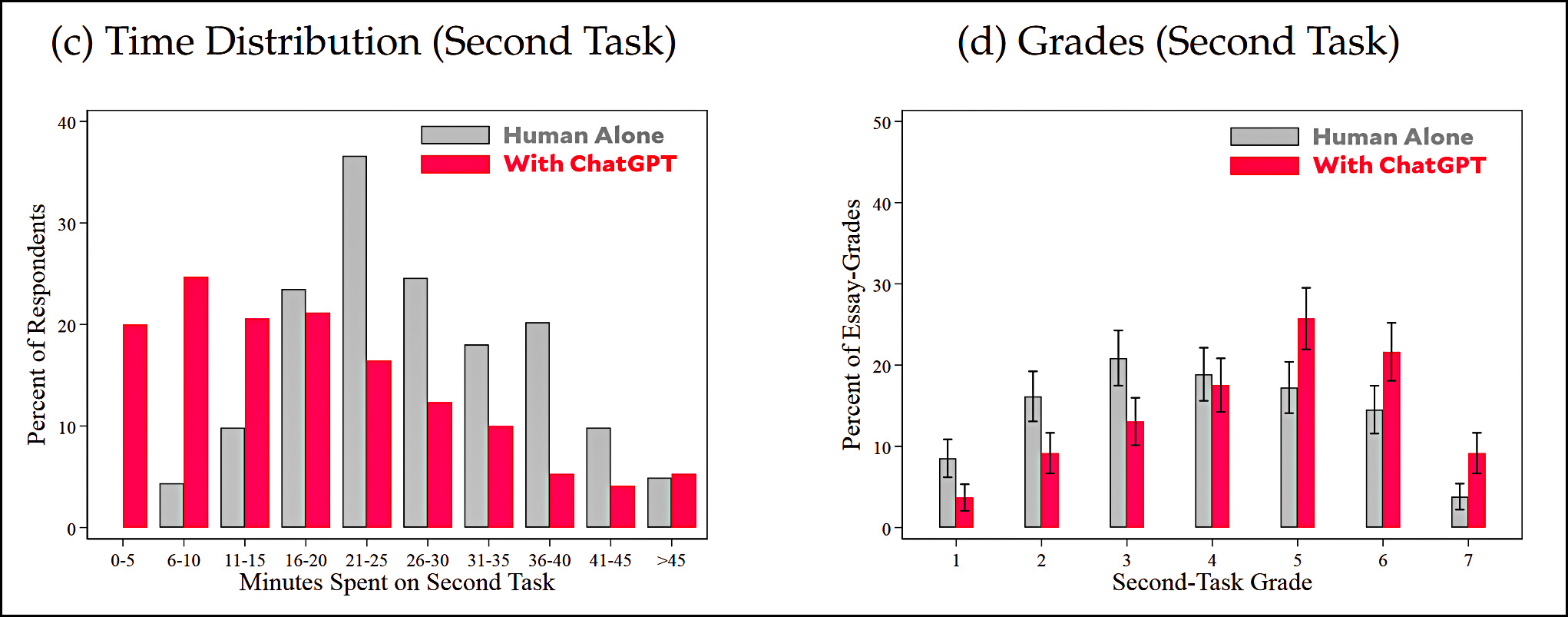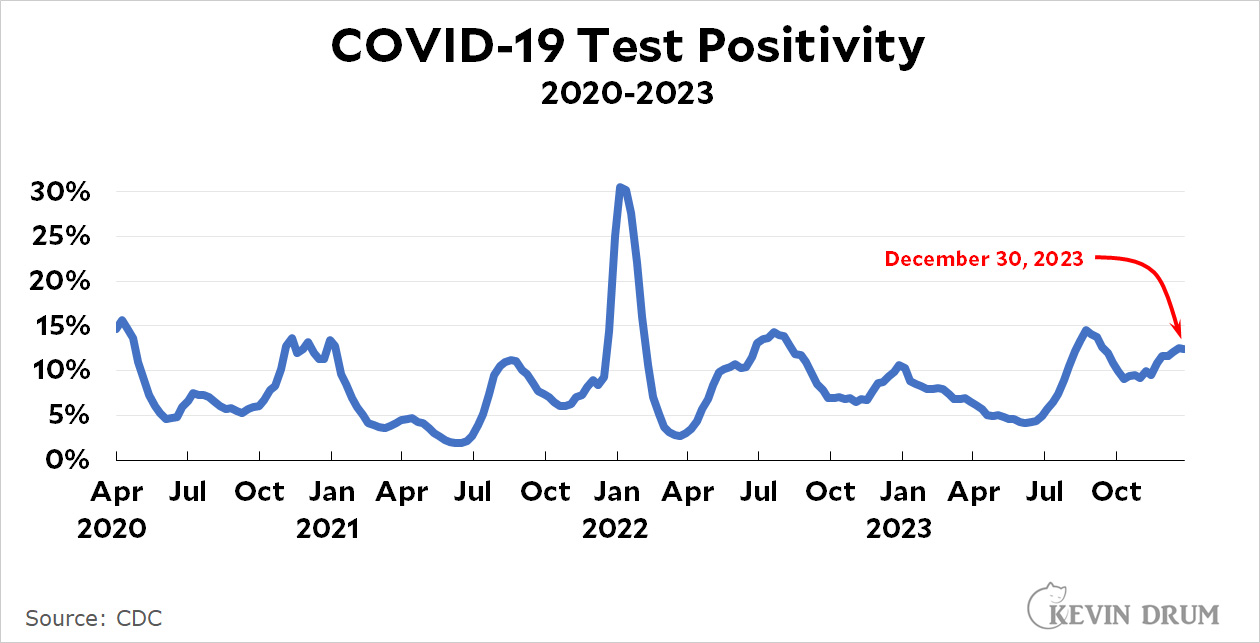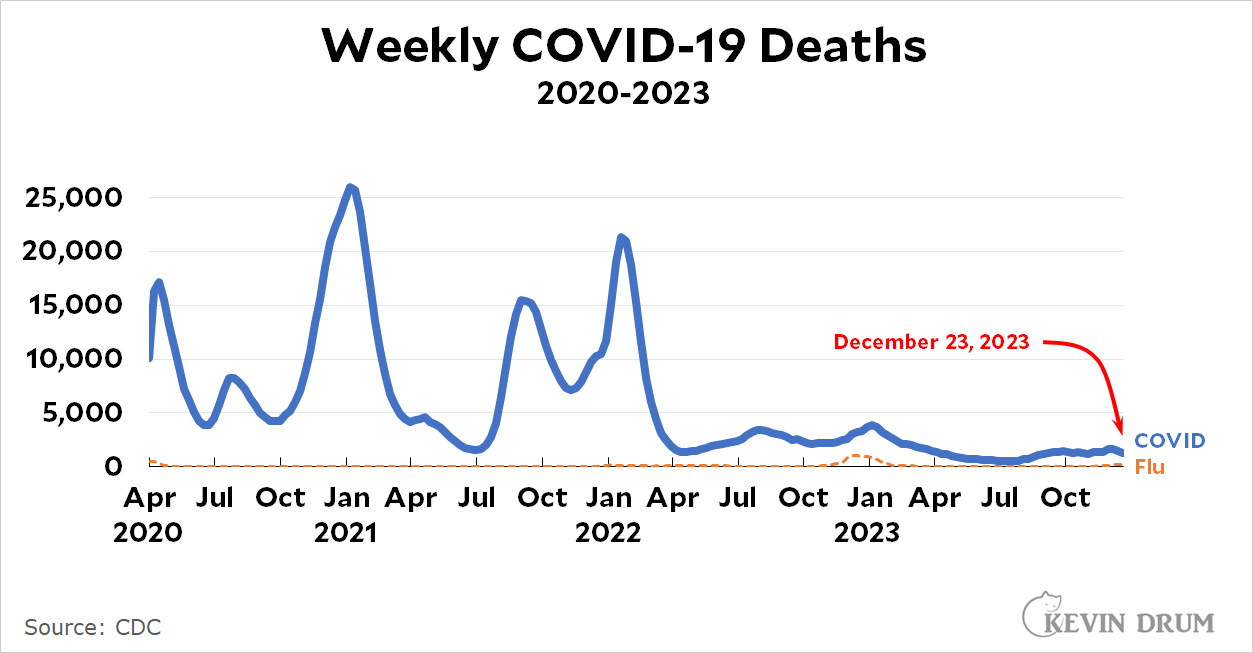Dan Drezner has a great piece in Reason this month called "The Post-Neoliberalism Moment." It's an unfortunate title that hides its real argument: globalization didn't hurt us during the pandemic and we abandon it at our peril.
We heard constantly during the pandemic that supply lines broke because they were so complex and global. But that's not really the case:
The more economists study the effects of the pandemic, the less evidence they find for the argument that globalization reduces resilience. Almost all of the shortages that occurred during the pandemic had little to do with globalized supply chains. Rather, they sprang from two causes—
To summarize, Dan says the two causes were (a) CEOs who screwed up by not forecasting demand shifts, and (b) CEOs who screwed up because they were obsessed with lean inventories that buckled under the slightest pressure.
I've often wondered if anyone ever seriously believed that things would have gone smoothly if only all our goods had been made in America. The notion is beyond ridiculous. COVID hit us too and kept our workers away from factories, so why would locally sourced products have been in any better shape than products sourced from China or Malaysia? They wouldn't have:
Economists Pinelopi K. Goldberg and Tristan Reed recently looked at whether the global economy suffered from shortages due to disruptions in the global supply chain. They found the exact opposite. That's because an economy with thoroughly nationalized supply chains increases its vulnerability to localized shocks. Even in instances like personal protective equipment (PPE), the evidence strongly suggests economies more reliant on imports were able to recover their stocks far more quickly than those that tried to produce more PPE indigenously.
Personally, I'd add something that Dan didn't touch on: the widespread myth that the global economy responded poorly to the pandemic in the first place. It was a pandemic! Under the circumstances, things went remarkably well. There were shortages here and there, but nothing very long-lasting or serious. And thanks to government intervention, most economies hummed along fairly nicely despite facing a deadly viral pandemic unprecedented in modern times.
There are lessons to be learned from COVID-19, just as there are lessons to be learned from the China shock of the aughts. But the lessons are fairly narrow. Our experience certainly doesn't suggest that we need a wholesale reordering of the global economy. Count your blessings, folks.








